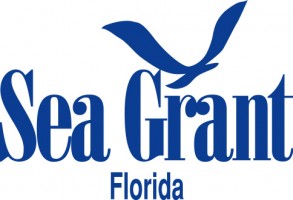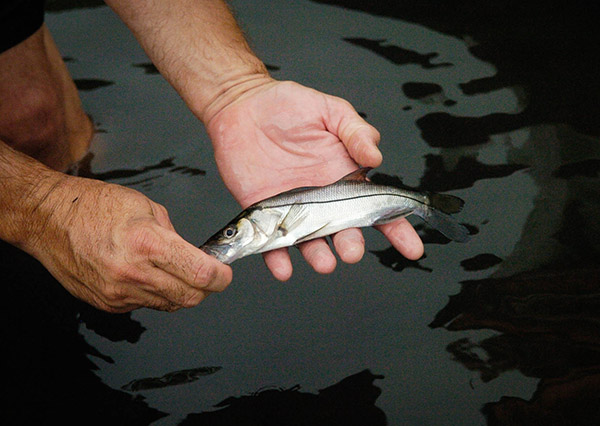Sarasota Bay Anglers Invited to Nov. 20 Fisheries Forum
Sarasota Bay anglers: Your knowledge can help our fisheries thrive. On Nov. 20, join local marine researchers for the first meeting of the Sarasota Bay Fisheries Forum — an independent, community-based discussion geared toward informing fisheries management and science.
The Sarasota Bay Fisheries Forum — a partnership between Mote Marine Laboratory and University of Florida (UF) funded by Florida Sea Grant — will offer repeating, open meetings where local anglers and others interested in sustaining Sarasota’s fisheries can share their knowledge, ideas, questions and comments. The ultimate goal is to pinpoint the needs and status of fisheries in more detail at the local level, allowing communities to give more complete, collaborative and sustained feedback to government agencies and researchers.
The Nov. 20 meeting will lay groundwork for establishing a long-term Fisheries Forum for the Sarasota-Manatee area. Meeting leaders will give an overview of the Fisheries Forum concept, and then participants will work in small groups to brainstorm key local fisheries issues and discuss potential processes for building and sharing group information and recommendations through existing opportunities for public comment.
- The meeting is free for participants and takes place from 6 – 8:30 p.m. on Thursday, Nov. 20 on the 3rd floor of Mote Marine Laboratory’s Keating Marine Education Center, 1599 Ken Thompson Parkway on City Island, Sarasota. The meeting is geared toward anglers but open to anyone interested in the future of local fisheries. RSVP is required by Nov. 17. Contact Paula Clark: 941-388-4441, ext. 691, pclark@mote.org
Saltwater recreational fisheries generate more than $6.5 billion per year for Florida’s economy, but they face increasing pressures from fishing, habitat changes and global climate change, along with natural challenges such as cold stress and Florida red tide. Populations of many key fish species have severely declined.
Anglers and other fisheries enthusiasts play a critical role in supporting sustainable fisheries and uncovering new priorities for research and management. Many anglers already communicate with scientists and with government officials, but their insight, knowledge and creativity may be more powerful when collected, sustained and focused around a particular location. Recent research suggests that fisheries can best be restored and sustained by combining science-based fishery regulations with restoration and enhancement of habitats and fish stocks — while accounting for the local or regional traits of each fishery and the people who benefit from and steward it.
“Our Fisheries Forums will bring together people who know and care about the fishery to have these conversations in a structured, enduring way — and it will really be place-based, focusing on fisheries issues in a local way that typically has not been done,” said Dr. Kai Lorenzen, a professor at UF in Gainesville, Fla. “In Sarasota, it is ideal to have the Forum hosted by our partners at Mote Marine Laboratory, as they have been working together with Florida anglers and serving as an independent source of fisheries information for years.”
Dr. Ken Leber, senior scientist at Mote, will serve as moderator of the Nov. 20 meeting. “Anglers and other fisheries stakeholders can be great ‘citizen scientists’ — many of them share our mission to better understand the status of our fisheries and work toward sustaining them,” Leber said. “We are looking forward to learning more from them about the place-based issues facing our fisheries, which will help us prioritize our research while empowering anglers to be even more effective in sharing what they know.”
Mote scientists will guide the Fisheries Forum discussions for Sarasota Bay, while Florida Sea Grant will lead a related Forum in Charlotte Harbor, starting with a meeting on Nov. 19. UF scientists will continue to coordinate the development of Fisheries Forums, documenting their results and progress.
The overall project aims to find out how to better engage people in fisheries issues through a combination of stakeholder meetings, interviews, surveys and public education. The results of the project will be driven by local community members.
The ultimate goal is to establish repeated meetings of local Fisheries Forums and expand the project through collaborators in other places, helping local communities coalesce for the good of fisheries statewide.


